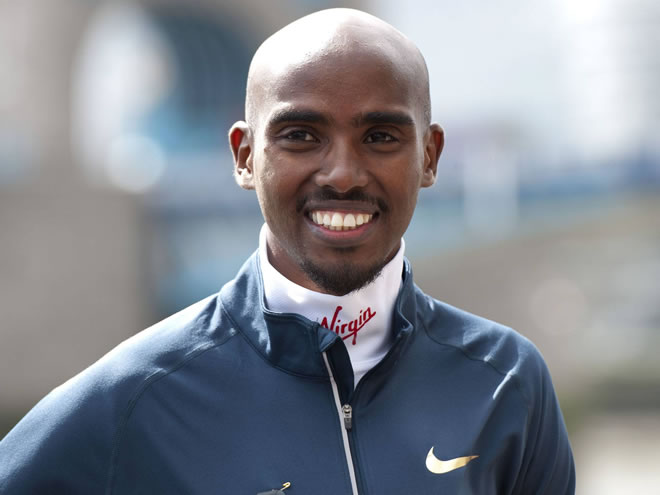The Treasury is to look into the decision by major high street banks, including Barclays, to withdraw support from companies which transfer money to developing countries.

Mr Farah has been sending money back to Somalia for a number of years. “Everyone following the issue understands that Barclays has a bank to run, but this decision could mean life or death to millions of Somalis,” he said. Photo: GETTY IMAGES

By James Quinn
Sunday, July 28, 2013
Lord Deighton, the commercial secretary to the Treasury, has confirmed that the Government will assess the impact of the decision by the banks on families of UK residents living in a number of countries in Africa and Asia.
The move comes as Mo Farah, the Olympic gold medallist, this weekend called on Barclays to delay its plans to close accounts to the firms concerned.
Mr Farah, who was born in Somalia, is concerned because Dahabshiil, the African country’s biggest money transfer company, is one of the money remitters which Barclays has decided to withdraw support for.
“Cutting this lifeline would be a disaster for millions. The small sums sent home by British Somalis each week enable family members to buy food, medicines and other life essentials,” he said.
Mr Farah has been sending money back to Somalia for a number of years. “Everyone following the issue understands that Barclays has a bank to run, but this decision could mean life or death to millions of Somalis,” he said.
Barclays is the last mainstream British bank to have provided such facilities, but is in the process of closing accounts held by cash transfer businesses amid fears over money laundering and terrorist funding.
Lord Deighton is in the process of setting up a discussion on the issue, which will bring together represen-tatives of the banks, major money remitters and the British Bankers’ Association.
In May, Barclays announced plans to withdraw its services from 80 money remitters after assessing how the accounts operated.
The decision followed similar moves by HSBC and the Royal Bank of Scotland, and was made in the wake of HSBC’s $1.9bn (£1.2bn) fine in relation to money-laundering allegations linked to client accounts between the US and Mexico.
Lord Deighton confirmed the Treasury’s willingness to look into the situation in response to a written question in the House of Lords from Baroness King.
He replied: “We commit to working with all the relevant authorities to look urgently at concerns expressed by several of the UK’s leading high street banks around the structural features of the sector and the money-laundering and terrorist financing risks this poses to the UK and the global financial system.”
A Barclays spokesman said it must comply with “the rules and regulations” in the jurisdictions it operates in.
He said: “Only a small number of money remitters we are not comfortable in banking have asked for an extension, and they have all been given more time to find another bank.”
The WikiLeaks release of the files of detainees of the US’s Guantanamo Bay detention facility suggested Dahabshiil was the money transfer method used by Muhammad Sulayman Barre to fund al-Qaeda’s November 2002 attacks in Mombasa, Kenya.
Dahabshiil has strongly denied those allegations, which it says are entirely untrue, stating that it has no involvement whatsoever with the funding of terrorist organisations.
The Somalian company has asked Barclays to reconsider its decision to terminate the relationship, or alternatively provide it with accounts for a further year to give it time to find a new bank.
Source: The Telegraph